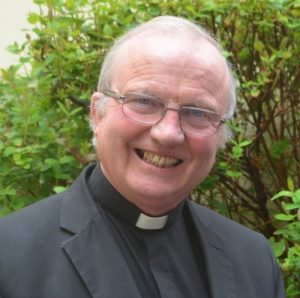
By Katie Ascough - 27 June, 2020

Bishop Donal McKeown
Bishop Donal McKeown delivered a homily at Mass in Saint Eugene’s Cathedral, Derry, this week on the new poverties that the pandemic has caused: poverty of hope, of education and of economic confidence.
Bishop McKeown set the scene for his comments by recalling the mission Jesus gave to his 12 apostles to evangelise the world, a mission which is continued by the Church to this day. Bishop McKeown reminds us that “Jesus himself knew that a call to repent, to imagine a much better set of human relationships, to break out of an earth-bound perspective – all of these would incur the wrath of those who were benefiting quite nicely from the status quo” and that “Jesus says that we should not whisper His teaching, but proclaim it from the rooftops – even if there are those who would kill you for speaking out”.
Bishop McKeown notes that if Jesus and the prophet Jeremiah had spoken only about “harmless, holy things” they would have been marked as “irrelevant fools”. However, when they spoke into “concrete political realities, when they spoke about arrogance and hypocrisy, when they defended the weak and defenceless they became dangerous”.
“In a world of fake news, the truth is unwelcome. In a fragmenting culture where everybody has their own infallible truth, those who speak of truth outside my little bubble undermine the individualist philosophy. Such voices will always be classified as dangerous or spoilsports,” the bishop continued.
“Secondly, there is much talk of getting back to ‘normal’. That all assumes that our earlier ways of running society and Church were the best that they could be. We are facing into a period when there will be new poverties. There will be the economic poverty. In a society with huge gaps between the well-off and the poor, an economic downturn first strikes the weakest and those who were hanging on by their fingertips.
“The pandemic has also increased the level of educational poverty. If we structure our education system in such a way as to advantage the already advantaged, are we building a future based on community or on competition? After three months with an emphasis on dedication and service, do we want to go back to children believing in the survival of the fittest, as if that were divinely ordained?
“And there will be a poverty of hope for many people. Can we offer a way of looking at life which inspires our young people to look forward rather than just anaesthetising them? Or will we continue to offer them role models who – with a very few notable exceptions – have had nothing useful to say into our current crisis? Will we as the Church be clear about what we want to shout from the housetops? …
“Thirdly, as a Church we have much to learn from these last months. We have seen the large numbers who have turned to prayer and worship, privately and online. In many homes there has been a rediscovery of the domestic church, where households have been, ate and prayed together much more. Parishes have often been very creative in finding ways of communicating and encouraging. And with the prospect of re-opening our churches for public worship, there has been a great surge of volunteers who want to be part of both planning and implementing the ‘new normal’, the Derry bishop said.
Bishop McKeown also noted that many people at this time are “frightened and insecure” and need to “at least have the chance to hear a message of healing and hope”. These people want to hear that the future “may well be tough because changing for the better requires grace. A healthy Christian spirituality,” the bishop continued, “will gather people who love both the Lord and the world. It is Jesus’ mission that we are called to carry on. That mission has a future and not just a past.
“Beginning tomorrow week, it will be great to be able to gather here in a real and not just a virtual congregation. That will be strange where we are encouraged to be both together and socially distant. But, please God, we will have churches where all can be fed and encouraged – and no-one’s mental or physical health is endangered by careless behaviour or poor practice. People will gather here if they hear the Good News of Jesus. Today we listen to Jesus and Jeremiah because they spoke with love and courage. We do well to learn from them,” Bishop McKeown concluded.